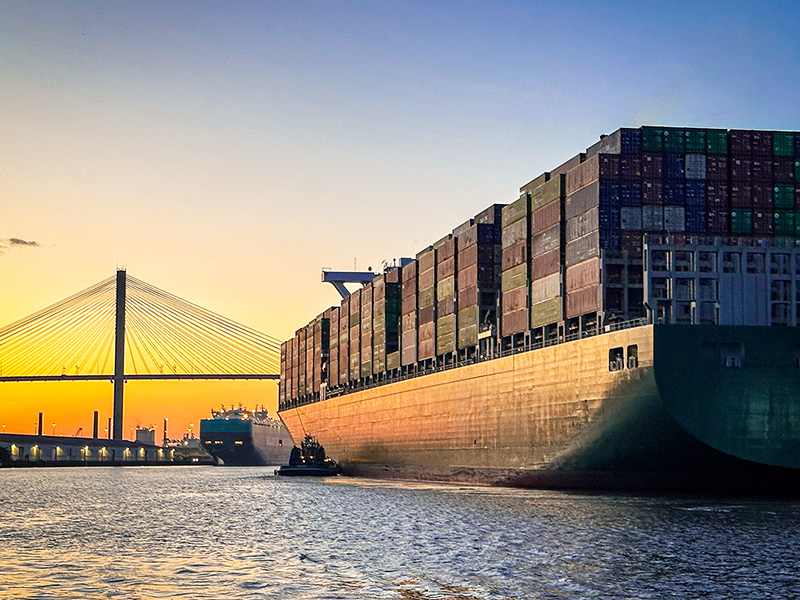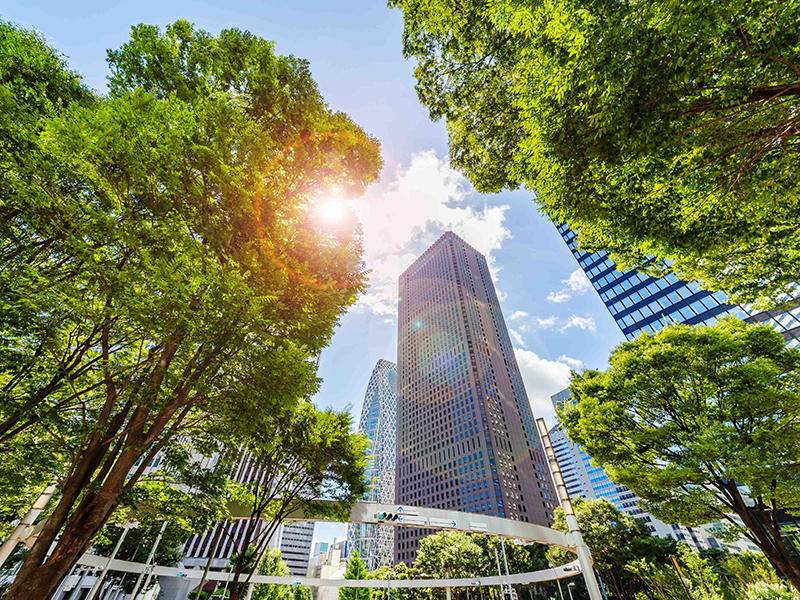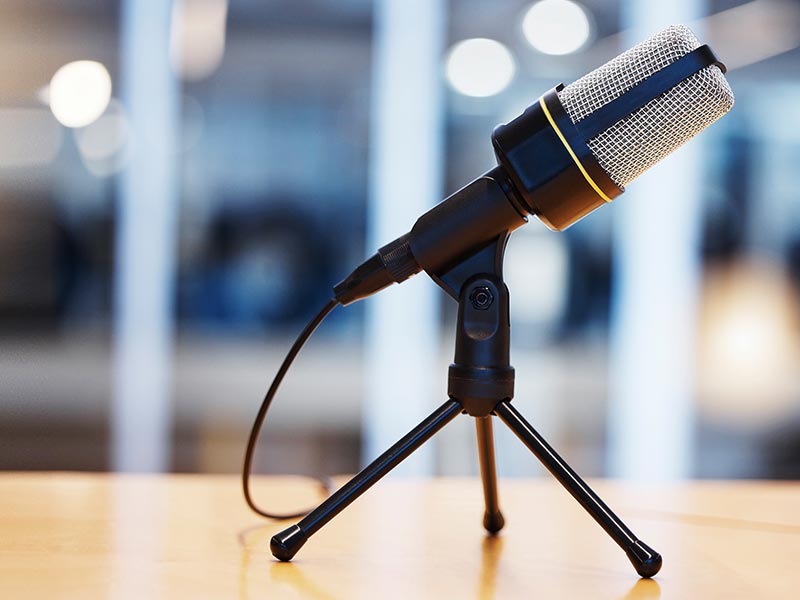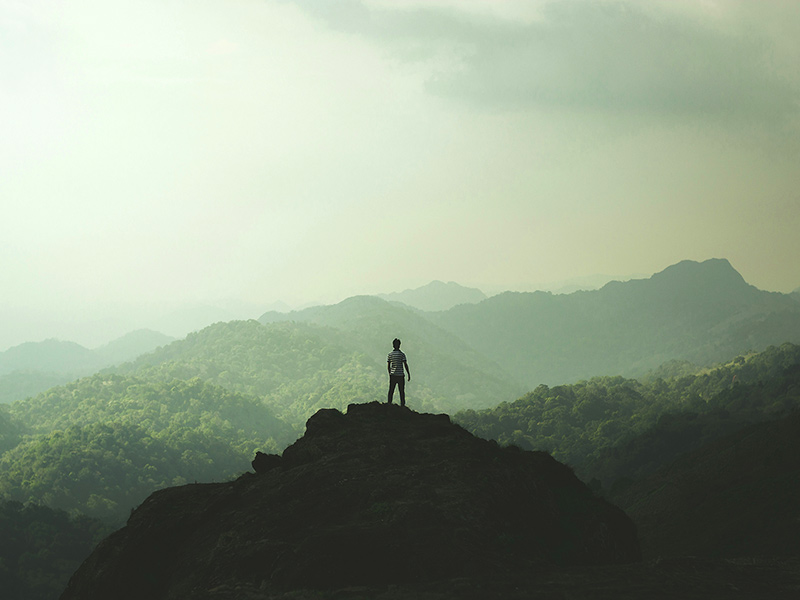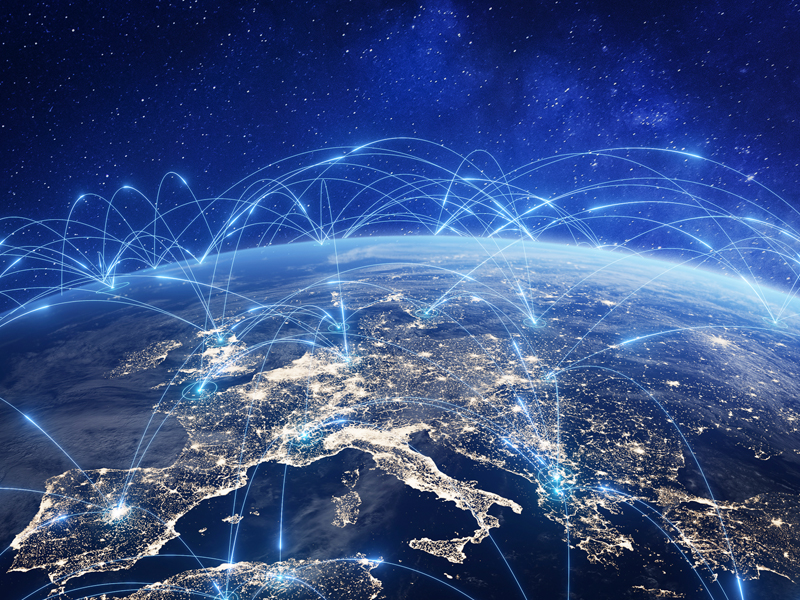Guests
-
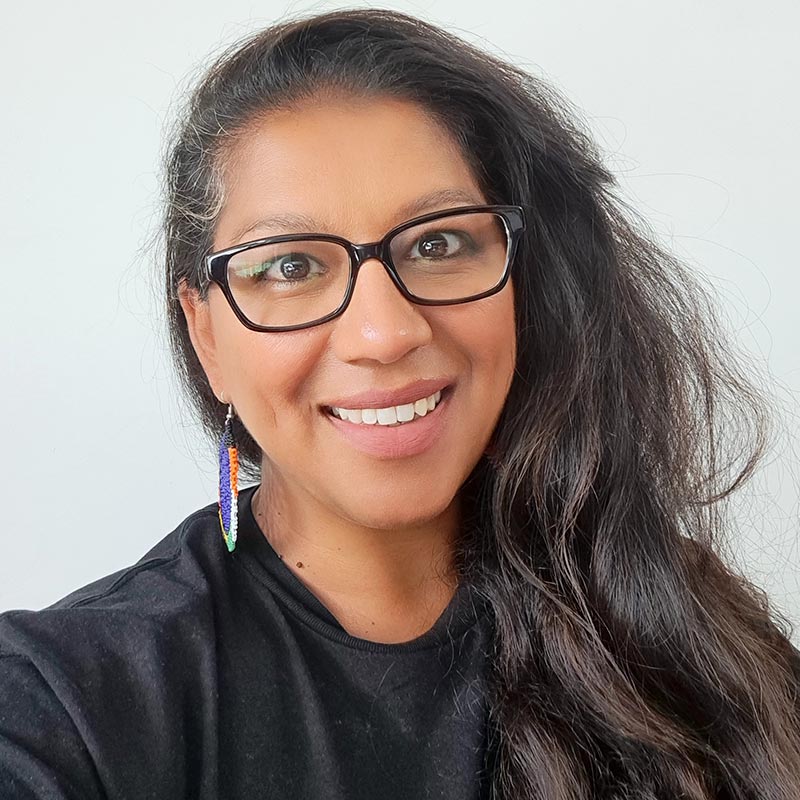
Darsh Myronidis
Group Director of Sustainability, Virgin

Darsh Myronidis
Group Director of Sustainability, Virgin
Recent Insights From Darsh Myronidis
- A Conversation with Darsh Myronidis, Group Director of Sustainability, Virgin / January 8, 2025 / Audio
-
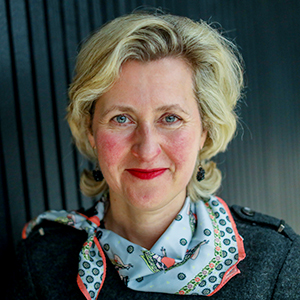
Managing Director, Transformation, BSR
Christine leads BSR’s Business Transformation team, helping companies to manage sustainability throughout their business and across their supply chains and to develop resilient business strategies that leverage insights from BSR’s Sustainable Futures Lab.
She works with companies across sectors and geographies to structure a sustainability management approach that mitigates risk and captures emerging opportunities, creating strategic advantage for their businesses, while contributing to a more just, sustainable world. Christine also co-leads engagement with boards of directors to promote effective board governance and leadership ambition on sustainability.
She brings over 20 years of experience in leading brand, sustainability, public affairs, communications, and reputation management with multinational corporations at the executive leadership level. This also includes overseeing corporate relations with external stakeholders, such as the World Economic Forum, the UN, European institutions, and investors.
Previously, Christine was Head of Brand Strategy at Nokia. She has also held major roles at Alcatel-Lucent and Alcatel, leading Brand and Corporate Sustainability and European Affairs. Christine has also served on various boards, including as a chair of the Telecoms Industry Dialogue on human rights, as an advisory board member of Reuters Events Sustainability, as a member of the Alcatel-Lucent Foundation, and on the European Internet Foundation.
Christine holds a MA in History and a BA in History and International Politics from the University of Ottawa. She completed the Management Acceleration Program (MAP) at INSEAD, and she achieved the ESG Competent Boards Certificate and Global Competent Boards Designation (2021). She speaks English, French, Spanish, and Italian.
Recent Insights From Christine Diamente
- EU Omnibus: It’s Time to Shift Focus from Compliance to Impact / March 10, 2025 / Insights+
- Beyond International Women’s Day: Enduring Actions for Global Business in a Turbulent Time / March 5, 2025 / Blog
- A Conversation with Mario Abreu, Group VP, Sustainability, Ferrero / February 6, 2025 / Audio
- Corporate Sustainability Governance Fitness Test: Three Actions for Leaders / January 23, 2025 / Blog
- Sustainability Goal Setting: A New Chapter / January 21, 2025 / Insights+
-
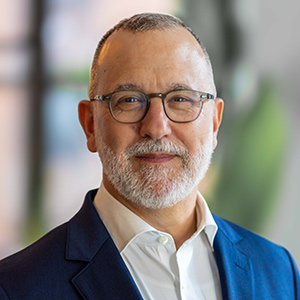
Managing Director, Marketing and Communications, BSR
David leads BSR’s marketing and communications initiatives, working with a global team to amplify the organization’s mission and showcase its activities, impacts, and thought leadership to members, partners, and the wider business and policy community.
David previously worked for The B Team, a group of global business and civil society leaders working to catalyze a better way of doing business for the well-being of people and the planet. Throughout his 20-year career, he has worked with businesses and nonprofits in economic development, public health, and sustainability to define and communicate their purpose and impacts. .
He has built high-impact communications campaigns for a collaboration to improve maternal health in Zambia and Uganda, driven top-tier media coverage for a major economic development project in upstate New York, and helped strengthen parliamentary capacity and voter education efforts in South Africa and Zambia. He began his career as a newspaper reporter.
David earned his M.A. from The Elliott School of International Affairs at the George Washington University and his B.A. in Journalism and Political Science from Michigan State University.
Recent Insights From David Stearns
- A Year of Uncertainty: Maintaining Progress Amidst a Battle of Ideas / February 13, 2025 / Audio
- A Conversation with Mario Abreu, Group VP, Sustainability, Ferrero / February 6, 2025 / Audio
- A Conversation with Darsh Myronidis, Group Director of Sustainability, Virgin / January 8, 2025 / Audio
- Reflections from Climate Week NYC: The Tension Between Pragmatism and Ambition / October 1, 2024 / Audio
- Navigating U.S. Election Uncertainty: A Call to Action for Sustainable Business / August 1, 2024 / Audio
Description
Darshana Myronidis, Group Director of Sustainability at Virgin Group, chats with BSR Managing Director, Transformation Christine Diamente, and host David Stearns about of the evolution of her role at Virgin, strategies for embedding sustainability within a company, how to maintain momentum in the face of externalities developments like the recent outcome of the U.S. election, and where the greatest opportunities for significant progress lie.
Listen
Transcription
David Stearns:
Welcome to BSR Insights, a series of conversations on emerging and cross-cutting business, economic, and social issues. Drawing on BSR's expertise from more than three decades of leadership in sustainable business, we help practitioners and decision makers to navigate today's increasingly complex world. I'm your host, David Stearns.
The role of the Chief Sustainability Officer is changing in dramatic ways. What began as an entrepreneurial role, has evolved over the years into a professional, fully integrated function embedded within corporate governance, compliance, and accountability. While more visible and valued than ever before, heightened expectations and pressures are placing the CSO at risk of becoming overly focused on compliance at the expense of innovation and strategic foresight. In this series, we chat with several influential sustainability decision-makers from BSR's global network of more than 300 companies who share their perspectives on how sustainability management has become more professionalized over the years, how they've addressed their biggest challenges and captured important opportunities, and what they're doing to maintain ambition in a time of turbulence.
Hello, I'm joined today by Darsh Myronidis, Group Director of Sustainability at Virgin, and Christine Diamente, BSR Managing Director for Transformation. Welcome to both of you and thank you so much for joining us today.
Christine Diamente:
It's a pleasure. Thank you, David, and thank you, Darsh, for being with us.
Darshana Myronidis:
Thank you so much for having me on the show.
David Stearns:
Thank you. And welcome, Darsh. So we wanted to start off by just getting to know you a little bit. So if you could tell us a little bit about yourself and your role there at Virgin. How long have you been in this role and what generally falls under your remit as the Group Sustainability Director?
Darshana Myronidis:
Sure, and thanks for the question. I've been at Virgin now for about two and a half years. A little bit about myself: I'm South African-Indian, living in the UK with my husband and two sons, and I've been working in the sustainability field for about two decades. At Virgin Group, I'm responsible for the strategic direction over sustainability towards meeting emissions reduction and net-zero targets, and that includes planning on how we coordinate elements of environmental, social, and governance into everyone's roles, both from a tactical and a more strategic overview.
David Stearns:
Thank you. Before we chat, I took a few minutes just looking through across some of your materials on the website and noticed that at Virgin you have an ethos that says, "Sustainability is a part of everyone's role and everyday actions." I thought that was quite striking. I'm just curious to know how does that play out in terms of how you manage sustainability at Virgin, not just within the sustainability function itself, but across the other units and functions with whom you partner?
Darshana Myronidis:
So I have to credit Emma Bleach, our Sustainability Manager, for that tagline of: "Everyone's everyday actions," which when you say it often, makes so much sense for what's needed to change behaviors and progress sustainability but it's also such a simple statement that has such a lot of meaning behind it. So currently at Virgin Group, the way that we manage sustainability is really embedded into everyone's roles and I think that is been done really strategically so that sustainability is a shared goal and everybody then starts to understand what we are trying to work towards as a group and therefore everyone's roles are important and every decision and every action counts towards progress of a more sustainable future.
David Stearns:
Are there particular techniques or ways that you've sort of built those bridges with the other units? Do you have regular meetings with them or how have you managed that process through your day-to-day work?
Darshana Myronidis:
I think it started overall, you know I came into the business new, but I didn't come into the business as, you know sustainability has been built in for over 50 years—baked in from family through to Virgin Unite and through to our purpose team, so I've always came into very purposeful business overall. Everybody understood changing business for good was our purpose and is still our purpose, and how we were working together is super important. So in a lot of ways, my job was a lot easier coming into a business like Virgin.
The reality is though, that everybody gets busy with their day-to-days in terms of dealing with each of their specific areas. And so I had to work to one, build relationships early on, and then two, take everyone through the journey to help everyone understand how their roles interact with sustainability and how their roles might be having a positive or a negative impact to different decision-making. And by showing that level of transparency and almost sharing the sort of insights and knowledge that I had, it was to help them gain the understanding of actually “change your business for good” means for you, a specific thing. And that took quite a lot of time, a lot of education and awareness, but to be in this role, you understand that it's a lot of behavior change that's in the background, which is what I concentrated on.
David Stearns:
That's really helpful. So of course, all of this work is taking place in a context, and the context in which we find ourselves today is quite dynamic. We're recording this today here on November 27th. We're approaching the end of the year. There's been a lot of disruptive changes taking place in the world and a lot of uncertainty which is accompanying these changes. And I'm curious to know how have you handled that or how are you handling that at Virgin? And then, what advice might you have for companies that are looking to ensure that they maintain that momentum and ensure that sustainability remains on that really important board agenda.
We get a sense from talking to companies in our network that there may be a sense that things have gone a bit quiet at the more senior leadership levels, and curious to know what advice you might have for peers in sustainability on how you've managed to sort of maintain that momentum and ensure that sustainability remains an important priority.
Darshana Myronidis:
One of the things to understand is I never feel the winds are mine alone, so I'm standing on the shoulders of a lot of people who've worked on sustainability for a number of years at Virgin. And before I arrived, the company amended its articles of association under Section 172, Better Business Act, to include people, society and the planet alongside our key stakeholders. The reality is that in a world that we are facing currently with quite a lot of volatility, I'd say, geopolitical risk, and there's a lot of uncertainty, the reality is that the role of somebody in a senior leadership position for sustainability is that we need to maintain our momentum no matter what.
We have seen this in the last 20 years, I've been part of the sustainability movement. We've seen that with oil and gas at its highest popularity, we've seen that in changing standard assets dynamics, thinking through, what does our future look like, planning to renewables, trying to move into solar. And so the landscape is always changing and I think that change is normality for a sustainability professional. The reality is that if you have identified your overall purpose, your core goals and what you're working to achieve, whatever's going on outside is noise. And to maintain focus, it means to actually reduce your ESG fatigue, keep yourself really mentally up for, I think, a longer fight for climate change because I think this is a fight for climate and nature, and for future generations.
David Stearns:
That's a great segue for me to bring Christine into the conversation. So I'm going to turn it over to Christine because I think you are going to be curious to explore with Darsh some questions around the challenges and opportunities in her role. So I'll turn it over to you, Christine.
Christine Diamente:
Yes, thank you very much, David. And Darsh, this has been so inspiring about how you've been working to maintain that momentum no matter what, and making sure that sustainability is really everyone's everyday actions. Now, we know that every leadership role comes with challenges, it comes with opportunities, it comes with big wins, but it equally comes with tough times. So what I'd love for you to tell us and share more of is what have been those disruptive wins that you've had as well as some of the challenges you've navigated through at Virgin?
Darshana Myronidis:
I'd say the disruptive wins have come in branches and very much see that as part of a group approach. So, sustainability, when you think about it, is sitting in our advocacy team and communications team. It's sitting in our people team, legal teams, purpose, finance, investment, including brand. Everybody has and understands what their role is and how to actually work towards that common sustainability goal of what we're trying to achieve. And so, when I look at the disruptive wins, at the moment, I'm seeing multiple disruptive wins from all sides, and that means that sustainability will be included in new brand frameworks that we are thinking about, it's included in forward-thinking investment in terms of our purpose team has developed a purpose decision-making filter. So it's about how we actually thread through, and one of the disruptive wins we've managed to achieve through working together is a form of radical collaboration. That means that we are all acting as one team in a company that's made up of so many different teams. And I think that is a huge win because sustainability needs many, it needs everyone on the journey.
I think in terms of leadership challenges and opportunities, in the past, sustainability I think was thought about as a cost center or compliance model. And when I look at sustainability right now, it's really about innovation and thinking about how you could use sustainability itself to disrupt people's thinking, think in a very diverse way, think in a way that actually means that if we could turn something around or make something new and invent a new way of doing something with sustainability at the heart, that is the sort of lens that I put onto every decision.
Christine Diamente:
So really true to the Virgin brand, it is about disruptive innovation, and you are that transformative change agent that really is driving it across all the roles, but also all the Virgin companies.
So now what I'd like to talk about is you mentioned at the beginning of this podcast that you've been in the sustainability field now for over two decades at various organizations before arriving here at Virgin over the last years. So how has the Chief Sustainability Officer role evolved or how has the sustainability leader role evolved? How has it become more professionalized or integrated in response to changes in the field? And do you feel that it's different at Virgin versus some of your previous organizations?
Darshana Myronidis:
I think in previous organizations, and obviously you see this in sort of tranches of sustainability, is reaching a specific level of populism at the moment in our industry and globally, we're finally being recognized for the work that we do and the skill sets that we bring across the business from a very strategic point of view, which is really good to see. I think that hasn't always been the case. And in some cases, now I know that there are some Chief Sustainability Officers who are still fighting the fight to get onto the board agenda and to help sustainability become integrated into everybody's roles. And I've seen so many versions of sustainability within organizations and one of the things that stands out in 2024 is the fact that sustainability has greater regulation around it. But the reality is, it is so far away from compliance, specifically because when I think about sustainability in terms of where we are right now, how we can use a regulation to innovate is super key.
At Virgin, specifically, the shared responsibility for sustainability definitely sits across finance, legal, sustainability, and purpose teams. And I've worked in a very decentralized way here. Half of my team sits in finance, and so that's sort of your carbon and supply chain roles and due diligence. And so we work really together as teams on strategic goals across all of our teams. And so when you think about it really, if you were as a sustainability leader able to decentralize what sustainability is while still steering the direction of travel for progress, that then leads true to the original tagline of, "Everyone's everyday actions."
And then for us to create the behavior change for people to want to take up the fight alongside their sustainability teams, we have to take them on the journey and help them understand how they can be of help giving them the tools that we already know. So a lot of what we are doing at Virgin is different because we are tackling the issues in a different way, in a way that is community-based, working together, and very much from a base of empathy and a broader purpose in terms of that north star.
Christine Diamente:
I love the empathy, I love the north star. I think you're one of the first people I've heard actually say that regulation is a driver of innovation. And it's very interesting how for you, sustainability tackles not only the cross-functional element, it's not only also about the skills and the tools and the shared responsibility, but it's that behavioral change that allows you to innovate and see the impact.
So, Darsh, we're based here in London in United Kingdom, but obviously there was a very significant election earlier this month in the United States. How do the results of the US elections change how you view your role?
Darshana Myronidis:
I think it certainly added the lens of focus onto priorities to ensure that we maintain the current trajectory in spite of any outside changes to the business. I think the reality is that sustainability is not short-termism thinking, it's not a four-year term. And so when you're in here for the long haul, the reality is that every sustainability person is thinking about 2030 and 2050. And to be honest, if we could meet our goals sooner, that would be the ideal. So that is the key focus right now.
Christine Diamente:
Thank you. And how will or will the results alter your plans for 2025? And I do really take note of, I love the fact that, sustainability is not about the next political cycle, it really is about the long-term thinking as well as the short to medium impacts that we can have to drive the agenda.
Darshana Myronidis:
I wouldn't say it's altered my strategy or goals at all. I think if anything, it's made me more passionate to want to do more, to actually think what else could we do in a different way and how could we start to support others that maybe don't have a voice? We are very fortunate at Virgin to have a brand and a leader who champion sustainability and purpose at the heart of everything that's done. And so how could we actually lend our voice, skill sets, time, advisory to others to be able to support, and I suppose have a multiplier effect for positive.
Christine Diamente:
Over the next three years, which topic issues, and you were talking about the topic issues before, do you see the most opportunities for significant progress? Or another way of asking this question is what do you hope to be doing more of over the next three years?
Darshana Myronidis:
I think in terms of progress, I definitely see two sides of the AI coin. I see the impact of AI and companies having to work together across their scope three to become a lot more responsible in terms of impact on natural resources across water and energy. But I also then see amazing opportunity in terms of how AI could help progress a sustainability field and also help us move at pace towards solutions. And I see that in terms of all of the different tools that are currently being used, and some we're not even aware of, to help mitigate risk alongside climate change impacts.
I think that if we look at the opportunities and topic areas that are most prominent, not only in terms of progress but just more prominent in general, I really see climate change, obviously, AI and geopolitical risk as those cornerstones of what I'd like to concentrate on, specifically because it comes with both the environmental and social impact, positives and negatives, and there's a need for governance across those topic points that is so relevant, and it reaches out into all different areas and parts of our business.
Christine Diamente:
These are not small typical issues. Obviously, AI as a mitigator for scope three, but also as an enabler for sustainability impacts, climate change, and also, how do we balance that up with geopolitical risk where right now we are navigating that disruptive turbulent world that David alluded to.
So, you said you're a mom, you're South African, you've got two young boys at home. What does all this mean to you personally? Do you have a message out there that you'd like to share with the next generation of aspiring sustainability leaders who want to bring upon the same impact and change that you've been fostering and pushing for over the last two decades?
Darshana Myronidis:
It currently feels like we're at the final hurdle. The SDGs are coming to an end. We have a five-year timeline, and every year at every climate event, I hear that now is the time to take action. I feel the time to take action has passed and the focus now needs to be forging ahead in spite of moving fast and accelerating, focus on absolute emissions reduction, social impact, livelihood upliftment. And personally, my children see what I do to champion climate, people, and nature on a daily basis, and so now I'm thinking about the type of world that I want to leave for them and how to help future generations. And that's my core focus, specifically because the decisions that we make today in our generation is going to impact everyone to come.
Christine Diamente:
Thank you so much, Darsh, and I'm a firm believer in the impact that you are going to have. Certainly, you've done tremendous things over the last two decades, so thank you very much for sharing this with us.
Darshana Myronidis:
Thanks for having me.
David Stearns:
Thank you so much, Darsh, as well. I think we all feel very grateful and fortunate to be able to do the work that we do, and I'm sure your kids look up to you as a beacon of inspiration. So thank you for the work that you do, and we're certainly eager to hear more about the work that you're doing at Virgin over the next several years. I want to thank you for your time. Christine, thank you as well, been a great conversation, and hope we can do it again soon.
Christine Diamente:
Thank you, David, and thank you, Darsh.
Darshana Myronidis:
Thank you very much.
David Stearns:
Thanks for listening. For more in-depth insights and guidance from BSR, please check out our website at bsr.org and be sure to follow us on LinkedIn.
BSR’s latest sustainability insights and events straight to your inbox.
Topics
Let’s talk about how BSR can help you to transform your business and achieve your sustainability goals.
